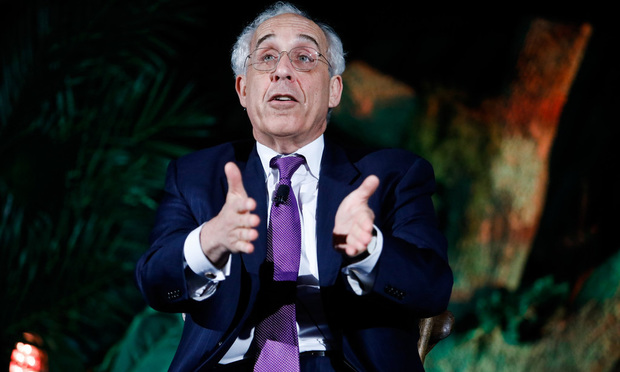Roberts Delivers Latest Pro-Arbitration Ruling for Divided Court | New Jersey Law Journal: Ginsburg said in dissent: “I write separately to emphasize once again how treacherously the court has strayed from the principle that ‘arbitration is a matter of consent not coercion.’”
The U.S. Supreme Court on Wednesday wrapped up its arbitration docket for the current term with a 5-4 decision that is a win for business and favors individual over class arbitrations.
The ruling in Lamps Plus v. Varela was the second pro-arbitration ruling this term, joining Schein v. Archer and White Sales in the Supreme Court’s longstanding trend of strengthening the Federal Arbitration Act against attack by consumer groups that view arbitration as a one-sided process working against employees. Both cases were argued on Oct. 29. Schein was decided in January.
New Prime v. Oliveira, the third arbitration case decided this term by the court, was a rare win for consumers, giving judges more power to decide whether arbitration can proceed in certain circumstances.
Chief Justice John Roberts Jr. wrote for the majority in the Lamps Plus case, overturning a decision by the U.S. Court of Appeals for the Ninth Circuit that allowed a class arbitration to proceed because the arbitration agreement at issue was ambiguous. Roberts wrote that, under the arbitration statute, an ambiguous agreement cannot be interpreted as allowing class arbitrations.
The lighting company was hacked in 2016, exposing tax information about 1,300 employees. Frank Varela, one of the employees, filed suit on behalf of a putative class, but the company pushed back, seeking individual rather than class arbitration.
The company, Roberts wrote, “sought an order compelling individual arbitration. What it got was an order rejecting that relief and instead compelling arbitration on a class-wide basis.” That shift, he continued, “sacrifices the principal advantage of arbitration” and “greatly increases risks to defendants.”
The decision was a win for Andrew Pincus of Mayer Brown, who represented Lamps Plus and also argued in AT&T Mobility v. Concepcion, the 2011 ruling on class arbitrations that Roberts cited in the Lamps Plus ruling. Michele Vercoski, partner at McCune Wright Arevalo in California, represented Varela.
 Andrew Pincus of Mayer Brown. (Photo: Diego M. Radzinschi/ ALM)
Andrew Pincus of Mayer Brown. (Photo: Diego M. Radzinschi/ ALM)
Lauren Novak, a partner at Schiff Hardin, said the ruling is “a clear win for employers. The decision is important, because it means that employers will maintain the benefits of individual arbitration and avoid the risks of class arbitration unless they agree to it.
Rusty Perdew of Locke Lord said Wednesday: “This decision will make it easier for parties who have an arbitration agreement to stop class actions filed in court and compel individual arbitration. Only agreements that clearly permit arbitration on a class basis will allow either party to force the other party into a class-action arbitration procedure.”
The court’s four liberals—Justices Ruth Bader Ginsburg, Stephen Breyer, Sonia Sotomayor and Elena Kagan—wrote separate dissents.
Using unusually strong language, Ginsburg said, “I write separately to emphasize once again how treacherously the court has strayed from the principle that ‘arbitration is a matter of consent, not coercion.’”
No comments:
Post a Comment